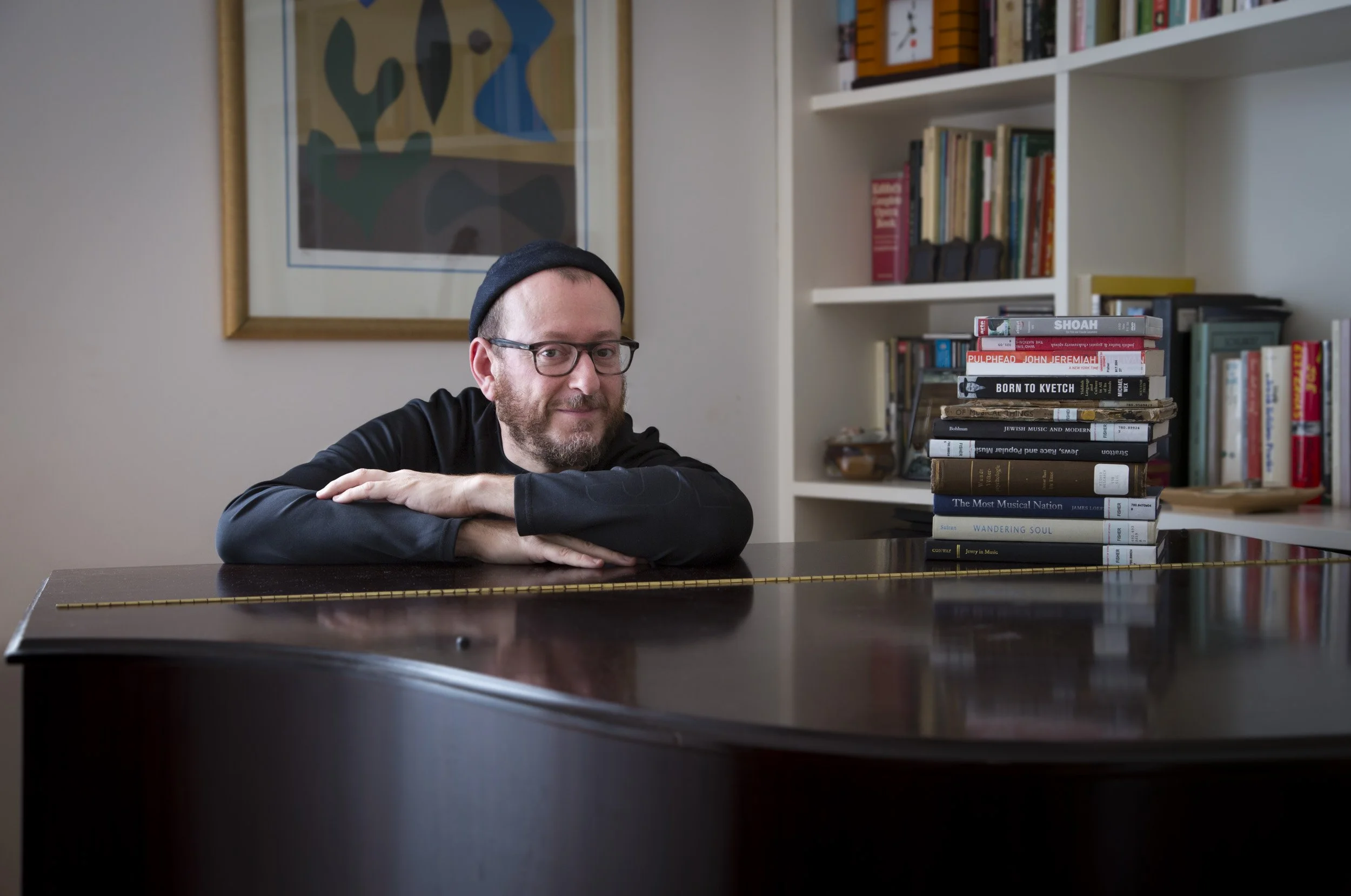Joseph Daniel Toltz | Ethnomusicologist / Former Jewish Chaplain and Cantor
Ever since the death of my cat in 1985, I have been grappling with death as an experience in life. It seems glib to trace it back to that moment when my father crawled under our house to retrieve the lifeless body of my beloved Pooki, bitten by a funnel web spider. We buried her under the oak in the back garden, and I chose a blood-red Azalea to mark her grave. During the painful final school years, amid taunting, black depression and sexual confusion, I retreated inwardly, either to the piano (losing myself in practice), or under the oak tree, to be close to the grave of my faithful, unquestioning, trusted companion.
My experience of human death began as a social family ritual. We drove out to the Rookwood Necropolis for the consecration of Aunty Sadie’s gravestone. Every funeral or consecration in the Klineberg family would be followed by a gathering at Cousins Lew and Cecile, in their Ashfield home.
They lived closest to Rookwood. Like all the Klineberg women (and some of the men), Cecile was an amazing cook. I still remember sitting in the sunroom with my grandmother, Aunty Sylvia and Charles, Uncle Joe, and all the members of the generation in their 70s and beyond. The cousins of my generation rarely interested me.
Death ruptured my being when my maternal grandmother, “the Mama” passed away. My poor sister was trapped in Louisiana on exchange, and couldn't make it back in time. I remember driving up to the Sanitarium Hospital to visit her, and the overwhelming sense of fear, guilt and dread about her terminal illness. The guilt has gone, finally, but the regret remains about my lack of presence. Of course, it didn't help that I was coming out at the time, and didn't want to burden Mama.
After she died, I went to say goodbye. Her body was cold; I found no comfort in the notion of her soul going anywhere. My faith never extended to belief beyond my own experience.
Five years after her passing, in order to confront my fears and guilt around illness and death, I enrolled in a clinical pastoral care course at St Vincent’s Hospital, and spent the last six weeks of the course on ward 4S at the Sacred Heart Hospice, ministering to terminally ill patients of many faith backgrounds. We rarely talked about afterlife, and during the next 12 years of chaplaincy, that conversation was noticeably absent or intensely private.
My ביקר חולים (visiting the sick) work was about being present for those in pain, providing a willing ear for comfort, distraction and support, helping their families and loved ones. Occasionally I was called on to say Psalms and recite the final ודוי (confession) for the dying. This prayer is generic and formulaic; it seems less about tangible atonement, and more about connecting to the core elements of the tradition.
I have been in rooms when people die, something changes, but I cannot quantify it, nor can I describe it. Talking about the afterlife continues to feel pointless to me, but talking about the process towards death is suffused with meaning. Death occupies a central place in my thoughts: it establishes a possibility of an encounter with something outside the self.
For me, death is defined by what it is not; the ultimate destination of our subjective existence, resistant to signification, intimately connecting our experience to the ultimate outside of our experience.
—Joseph Daniel Toltz (2015)
Editor’s note: Joseph Toltz is a Jewish music researcher, composer and performer affiliated to the University of Sydney. Formerly Cantor and Director of Music at Emanuel Synagogue (1995-2008) he has just produced a documentary film with Tim Slade, Singing up the Past: the songs of Guta Goldstein which will premiere at the International Jewish Film Festival in Australia in November 2024. His first large orchestral commission, an arrangement of Boaz Bischofswerder’s Phantasia Judaica will be premiered by the Melbourne Symphony Orchestra on 31 October 2024. His first book, Out of the Depths: the first collection of Holocaust songs will be released by Manchester University Press in January 2025. Further reading: https://www.josephtoltz.com/
The Death Letter Project welcomes your comments and feedback. Please feel free to leave a comment on our Facebook page or alternatively submit a message below.
